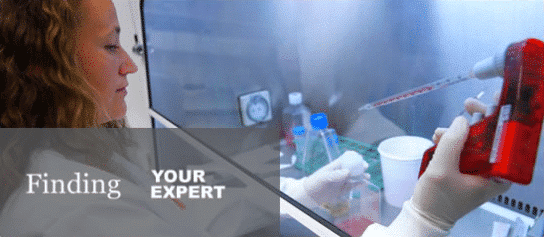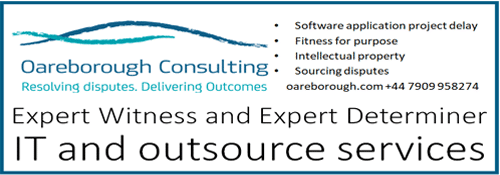An expert witness is …
The primary function of an expert witness (sometimes known as a forensic expert) is to express an independent expert opinion based on the information that is provided. An expert can be employed in different capacities for example at arbitrations, tribunals, and litigation.
A witness is a person giving sworn evidence to a tribunal or court of law. There are basically two types of witness:
- Witnesses of Fact who may give evidence of fact but may not normally give opinions;
- Expert Witnesses who may give opinion evidence within their expertise and in addition evidence of facts.
What is an Expert Witness?
An Expert Witness can be anyone with knowledge or experience of a particular field or discipline beyond that to be expected of a layman. The Expert Witness’s duty is to give to the Court or tribunal an impartial opinion on particular aspects of matters within his expertise which are in dispute.
In England & Wales and many other jurisdictions the Court must give permission for an Expert Witness to give evidence.
An Expert Witness is not an expert adviser who is normally appointed by a party to assist in the formulation and preparation of a party’s claim or defence. An expert adviser does not have an overriding duty to the court but to the party instructing him.
An Expert Witness will
- Provide an independent expert opinion in their area of expertise on the subject matter in accordance with the instructions they are given. These instructions will be shown in the Expert Witness’s Report which will be seen by the other side and the Court.
- Provide the opinion in the form of a report and/or evidence before a Court (or other tribunal) as required. The report is required as it is not usually possible for the Expert to give evidence without it.
- Ensure the Expert’s Report provided to you contains the information required by the Court Rules. If you proceed you will have to give a copy of the report to the other side in the dispute. At that time a copy of the other side’s Expert’s Report will be given to you.
- Comply with the specific procedure rules applicable and any Court or tribunal Orders in the case.
- Provide truthful, impartial and independent opinions whether or not these opinions favour your case.
- An expert witness has an overriding duty to the Court (or other tribunal). This duty supersedes any duty owed to you even though you are still responsible for paying the expert’s fees.
- The Court expects an expert witness to be independent and impartial and will discount the evidence of one who is or is seen to be partisan.
An Expert Witness will not
- Be your advocate and argue your case, nor will they find evidence or suggest what your case should consist of. It is for you or your legal representatives to advocate your case.
- Provide any opinion beyond their specific area of expertise.
- Provide advice.
- Accept any appointment which involves a conflict of interest (unless resolvable by disclosure).
- Accept any appointment on terms that are conditional on the outcome of the case. Examples of these are success fees or conditional fee arrangements (any form of payment linked to the results of the Case). Conditional terms are incompatible with the expert being seen to be independent.
- Act as a negotiator.
You must (yourself or through your legal representatives)
- Agree contractual terms with the expert in writing before the work is started. These will include terms of payment. Many experts use standard terms such as The Academy of Experts ‘Model Terms of Engagement For The Employment of Experts.’
- Provide detailed instructions.
- Keep the expert informed of developments in the case and of all key dates in good time.
It is better that the legal representative, if you have one, deals with the Expert rather than you doing so.
Types of Expert Witness
In England & Wales there are three types of Experts
- Party Appointed Expert (PAE): The expert witness is appointed and instructed by one of the parties in the dispute. The primary duty is to assist the Court on the matters within his expertise and this duty overrides any obligation to the party from whom he has received instructions or by whom he is paid.
- Single Joint Expert (SJE): The expert witness is appointed and instructed by the parties involved in the dispute. The primary duty is to assist the Court on the matters within his expertise and this duty overrides any obligation to the parties from whom he has received instructions or by whom he is paid.
- Expert Adviser (Shadow Expert): The Expert is appointed by one of the parties to advise them in the dispute. This type of Expert is not covered by the Civil Procedure Rules and does not have a duty to the court and will not normally give evidence.
When are expert witnesses used
An Expert Witness is required when it is necessary to have opinion evidence to assist in the resolution of a dispute. This opinion may lead to an early resolution of the dispute. An Expert Witness may be involved in court proceedings and may be called to give evidence.
The current rules encourage the use of a Single Joint Expert who is instructed by all the parties in the dispute to provide an opinion on the issue in proceedings. However it is still possible to have an expert witness who is appointed by one party (party appointed expert). The duty of either an SJE or PAE is the same namely an overriding duty to assist the Court. Once a report has been produced it is open to the parties to ask questions on any aspect of the report and the expert is required to respond provided they are for clarification purposes. The report and any answers given then form part of the evidence before the court and is used by them to assist in making a judgement.





